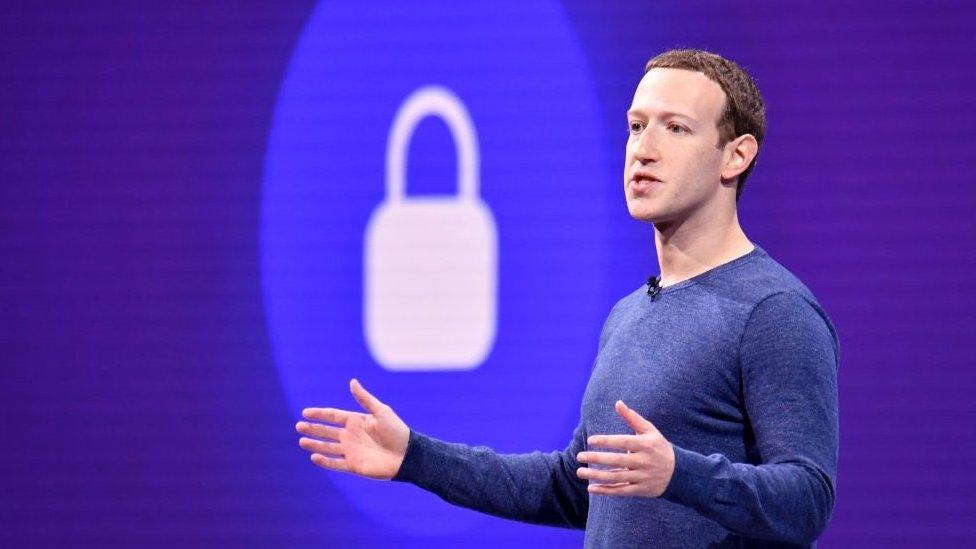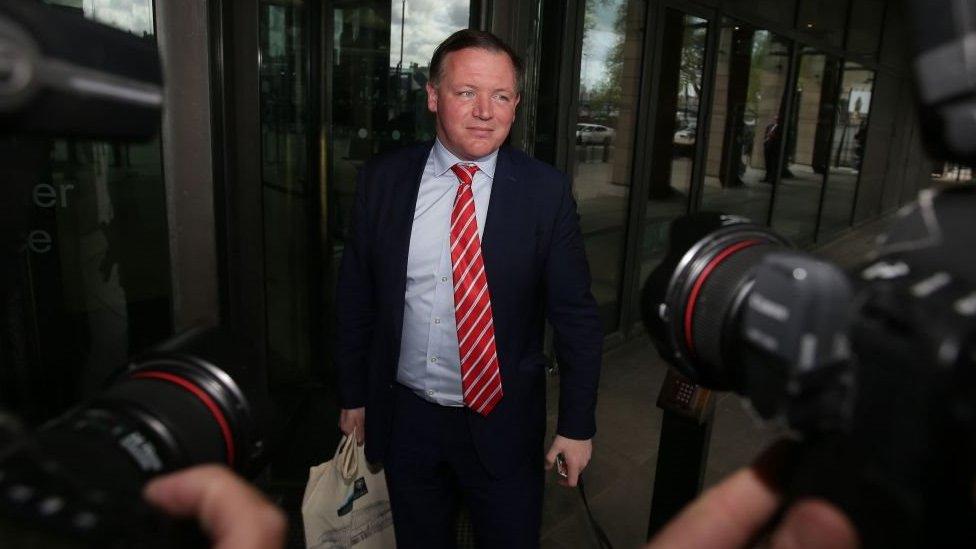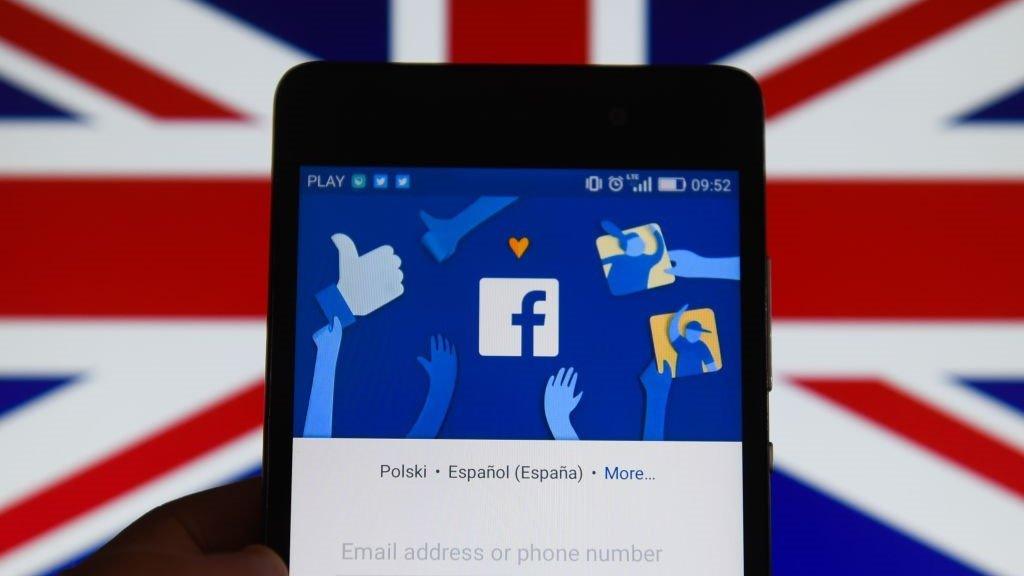Facebook letter fails to satisfy DCMS chair Damian Collins
- Published

Questions had been asked about why Facebook said its chief executive had not been briefed about Cambridge Analytica until 2018
Facebook's denials that it had given "inconsistent evidence" about the Cambridge Analytica affair have failed to convince a senior MP.
The US company had been accused of contradicting itself in testimony to US and British officials.
It defended itself by drawing a distinction between two incidents that had raised internal red flags about the political consultancy.
But Damian Collins said the explanation was "typically disingenuous".
Scrape data
Mr Collins chairs the Digital, Culture, Media and Sport (DCMS) committee, which investigated the social network as part of an inquiry into disinformation and "fake news", external.
He subsequently wrote to Facebook's communications chief, Sir Nick Clegg,, external at the start of this month, to seek "clarity" about why documents published by the US Securities and Exchange Commission appeared to be in conflict with evidence previously given to Westminster.
In particular, Mr Collins drew attention to the SEC's statement that Facebook employees had first requested an investigation into Cambridge Analytica in September 2015.
He noted that Facebook's chief technical officer had told MPs that Facebook had first learned about the London company's misuse of data from a Guardian newspaper report in December 2015.
The US company responded by saying its representatives had been "entirely consistent" in their accounts - since the two dates referred to "two different things".
The earlier date, it said, had referred to the point in time its staff had heard of rumours that Cambridge Analytica had been promoting its ability to scrape data from public Facebook pages.
The second date, it said, was when it had first heard of allegations that Cambridge Analytica had illicitly obtained private user data from a university researcher - Dr Aleksandr Kogan - who had gathered the information via a personality app.

Mr Collins had sought to question Mark Zuckerberg himself about the Cambridge Analytica affair but had the opportunity to quiz his deputies only
It also addressed concerns raised by Mr Collins about how long it had taken to bring the matter to the attention of Facebook's chief executive.
The US technology company had previously said Mark Zuckerberg had not been notified until March 2018 about claims Cambridge Analytica had kept hold of Dr Kogan's data despite having being told to delete it.
In its latest response, Facebook's UK public policy chief said this had been because its staff had been assured the records had been wiped.
"Cambridge Analytica further certified that it had never used the data for commercial purposes," wrote Rebecca Stimson.
"Facebook employees therefore believed as early as January 2016 that the situation had been resolved."
Mr Collins, however, has tweeted that he is still dissatisfied with this account.
"They didn't previously disclose to us concerns about Cambridge Analytica prior to December 2015 or say what they did about it and haven't shared results of investigations into other apps," he wrote, external.
Cambridge Analytica itself collapsed last year after saying it had been "vilified" for legal activities.
However, questions continue to be asked about its links to Leave.EU's Brexit campaign.
Mr Collins's committee published leaked emails related to the political consultancy's involvement in the referendum as recently as a fortnight ago, external.
- Published1 August 2019
